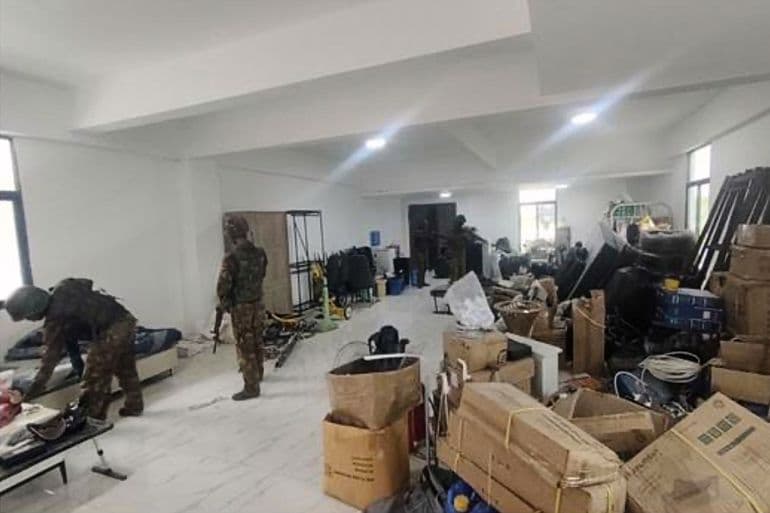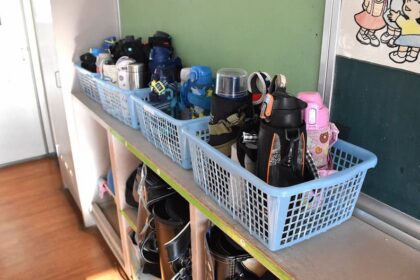Why the Shwe Kokko raid matters now
Myanmar’s military says it stormed the Shwe Kokko complex near the border with Thailand, arresting 346 foreign nationals and seizing close to 10,000 mobile phones said to be used in gambling and fraud schemes. The operation, carried out on Tuesday morning, targeted one of Southeast Asia’s best known cybercrime hubs. It arrives amid a renewed campaign against scam compounds that have generated billions of dollars and drawn anger from neighbors, especially China.
- Why the Shwe Kokko raid matters now
- What happened during the operation
- Who is linked to the hub
- How the scam economy works
- Regional pressure shapes the crackdown
- On the ground, a mixed picture of enforcement
- Technology that keeps the scams alive
- Human cost and cross border fallout
- What the raids mean for Myanmar’s conflict
- Key Points
Shwe Kokko sits across the Moei river from Mae Sot in Thailand’s Tak province. The area has seen a rapid expansion of casinos, hotels and office towers that house large call center style scam floors. The military has accused armed resistance groups of sheltering these businesses. Commanders say the raid followed recent advances that restored control around the trading town of Myawaddy.
Online fraud centers multiplied during the pandemic across border regions of Myanmar, Cambodia and Laos. The United Nations estimates that victims in Southeast and East Asia lost up to 37 billion dollars in 2023, with global losses likely higher. Investigators say hundreds of thousands of people have been trafficked into compounds where passports are seized and workers are forced to run romance and investment scams. The Myanmar authorities have long been accused of tolerating the industry. A sharpened crackdown began this year after sustained pressure from Beijing.
In the past two months, the military has announced a series of operations around Myawaddy. A raid in October on the nearby KK Park complex was billed as a major blow, with officials claiming more than 2,000 workers removed and dozens of satellite internet devices seized. Washington and London have stepped up sanctions on operators tied to the networks, while regional governments have tightened border controls and internet links.
What happened during the operation
State media said troops entered Shwe Kokko at dawn, moved through gambling halls and office blocks, and detained 346 foreign nationals for questioning. Officials described them as suspects in online gambling and fraud operations. Nearly 10,000 phones, network routers and other electronics were confiscated. Authorities said they intend to screen detainees for signs of coercion and trafficking, repatriate victims, and prosecute those believed to be managers and recruiters.
The action fits a broader pattern that combines arrests with seizures and visible demolition works. In KK Park, officials said more than 600 buildings were leveled with heavy machinery and explosives. Thailand protested that debris fell into its territory. Myanmar denied the claim. Satellite imagery reviewed by independent analysts later showed damage in parts of KK Park but many buildings still standing, a sign that enforcement on the ground has been limited.
Who is linked to the hub
Shwe Kokko has long been associated with the Yatai group tied to She Zhijiang, a Chinese Cambodian businessman. He was detained in Thailand in 2022 and extradited to China last week to face allegations related to online gambling and fraud. The United States and the United Kingdom have sanctioned She and his companies. US officials allege he transformed a rural area into a resort style city built around gambling, prostitution, trafficking and digital scams.
The Karen Border Guard Force, a militia aligned with Myanmar’s military, provides security in the area and has extensive business interests in and around Shwe Kokko. Its commander Saw Chit Thu and other leaders have been sanctioned by Washington for enabling cybercrime and human trafficking. Researchers say the militia shares revenue from Shwe Kokko with the military leadership. Local sources reported that prominent operators were warned and left before recent raids, while many lower level workers tried to flee.
How the scam economy works
The fraud model blends old confidence tricks with new technology. Recruiters lure young people from across Asia and parts of Africa with promises of high salaries and legal jobs in customer service or finance. When they arrive, many are forced to surrender passports and phones. Guards move them into dormitories inside fenced compounds. Workdays stretch for long hours. Supervisors push scripts that target victims on social media and messaging apps with romance approaches, fake investment tips and cryptocurrency trades. Those who miss targets risk beatings, electric shocks or sale to another compound.
At the other end of the line, victims are persuaded to move money into what looks like a trading platform. Balances appear to grow. When a victim tries to withdraw, the site either demands more fees or goes offline. Losses can destroy life savings. The United Nations has warned that the scale of forced labor and violence inside these compounds amounts to a human rights emergency.
The border geography helps the industry endure. The war that followed the 2021 coup left gaps in control where armed groups and militias levy taxes, provide security and strike deals with criminal syndicates. Workers arrive from China, Thailand, Vietnam, Malaysia, India and beyond. Some join willingly for the pay. Many are trafficked. Regional governments have flown thousands of people back home in recent months. Myanmar officials say about 68,000 foreign nationals who entered illegally since late 2023 have been repatriated.
Regional pressure shapes the crackdown
The crackdown reflects mounting pressure from neighbors. China has grown frustrated with the number of its citizens drawn into scam centers, both as victims and as workers. Chinese police have sought the return of thousands of nationals. Thailand cut electricity and network links to some compounds early this year and tightened controls around the Moei river. Officials say about 7,000 suspected scammers were moved out of Shwe Kokko in an earlier sweep. Cross border pressure has made it harder for operators to hide.
The United States created a Scam Center Strike Force that deploys investigators to work with regional police and targets criminal networks that defraud Americans, often through fake cryptocurrency platforms. Myanmar’s military leadership has rejected cooperation with Washington and presents itself as part of China led efforts to combat telecom fraud.
Major General Zaw Min Tun, the military spokesman, argued that foreign initiatives have political motives and stressed the regime’s coordination with nearby governments.
“There is no evidence of United States led operations on Myanmar soil,” he said. “We see a hidden agenda behind this campaign.”
On the ground, a mixed picture of enforcement
Despite high profile announcements, many researchers and locals report that scam operations continue with little interruption. Residents around Myawaddy described evacuations of top operators before raids and the return of activity afterward. Satellite images of KK Park taken days after demolition claims showed large areas intact. These accounts fuel the view that the campaign is designed to ease pressure from Beijing and Washington without cutting off militia finances.
Jason G. Tower, a senior expert on transnational crime with the Global Initiative Against Transnational Organized Crime, described the recent activities as theater rather than a true clean up.
“Neither the military nor the Border Guard Force have any real interest in dismantling scam centers that generate billions in illicit revenue,” he said.
His assessment aligns with reports that dozens of scam sites remain active in the Myawaddy cluster, many under the protection of militia groups that back the military. The suggestion is that raids have hit selected targets and removed expendable workers, while leaving the core business intact.
Technology that keeps the scams alive
Connectivity is the lifeblood of the fraud factories. Myanmar authorities said they seized 30 Starlink satellite internet terminals in KK Park in October. Many compounds use satellite links to stay online when land networks are cut. Starlink, operated by SpaceX, is not licensed in Myanmar. Thai police and provincial officials say hundreds of terminals have been smuggled across the border. SpaceX has reported disabling more than 2,500 devices at scam centers inside Myanmar.
The call center style floors rely on automated texting tools, crypto wallets and exchanges, and a mix of local and foreign bank accounts. Operators rotate domain names and apps to evade takedowns. Thai moves to cut power and bandwidth have raised costs for crime groups, yet the fall back to satellite links, generators and smuggled SIM cards means the business can shift and resume.
Human cost and cross border fallout
Raids can trigger sudden movements of people. Thai officials in Tak province recorded more than 1,000 arrivals in Mae Sot over two days as people fled across the Moei river after the attack on KK Park. Footage showed groups using foam boxes to float their belongings. Many of those who crossed were Chinese men, along with nationals of India, Pakistan, Vietnam and several African countries. Thai authorities say arrivals are screened to identify trafficking victims, who are then sheltered and assisted. Others face charges for illegal entry.
Sawanit Suriyakul Na Ayutthaya, the deputy governor of Tak province, said authorities expect most arrivals to be linked to the raids and promised trafficking screenings.
“Most arrivals were believed to be from KK Park and would be screened for human trafficking,” he said.
Humanitarian groups warn that those trapped in compounds face reprisals when security forces move in. Workers who cannot escape risk being sold to other sites. Victims who do make it over the river often arrive without money or documents and need medical care.
What the raids mean for Myanmar’s conflict
The military has pushed to regain ground around Myawaddy, a vital trade artery with Thailand. Commanders want to secure the highway that links the border to central Myanmar and to show enough control to stage elections. The Karen National Union, the main ethnic resistance group in the area, denies involvement in scam operations and says militias allied with the regime profit from them. Shutting down the hubs would weaken those militias and cut revenue that helps fund the military’s campaigns, which is one reason analysts doubt a full clean up will happen quickly.
Criminal networks are mobile. When one compound is raided, operators shift equipment to another site inside Myanmar or across the region. New buildings continue to rise along the border. For victims and nearby communities, any relief will depend on tighter cooperation between regional governments, more aggressive targeting of financiers who move stolen funds through crypto and banks, and sustained support for survivors of trafficking.
Key Points
- Myanmar’s military says it raided Shwe Kokko near the Thai border, detaining 346 foreign nationals and seizing nearly 10,000 phones tied to gambling and fraud.
- The operation follows an earlier raid on KK Park, where authorities claimed more than 2,000 workers were removed and 30 Starlink terminals were seized.
- She Zhijiang, linked to the Yatai group tied to Shwe Kokko, was extradited to China to face gambling and fraud allegations and is under US and UK sanctions.
- Militia groups aligned with the Myanmar military, including the Border Guard Force, are accused by researchers of protecting scam sites and sharing profits.
- China has pushed for tougher action, Thailand cut power and internet links, and the United States launched a Scam Center Strike Force with agents deployed to Bangkok.
- Satellite images indicate KK Park remains largely intact despite demolition claims, raising questions about the depth of enforcement.
- More than 1,000 people fled from Myanmar into Thailand after the latest raids, with Thai officials screening arrivals for signs of trafficking.
- Myanmar authorities say about 68,000 foreign nationals who entered illegally since late 2023 have been repatriated.
- The United Nations estimates victims in Southeast and East Asia lost up to 37 billion dollars in 2023, and hundreds of thousands have been coerced to work in compounds.
- Military spokesman Zaw Min Tun dismissed US involvement and alleged a hidden agenda, while presenting cooperation with China and regional partners.












